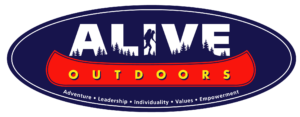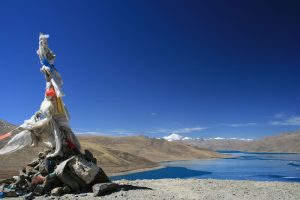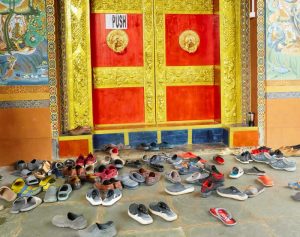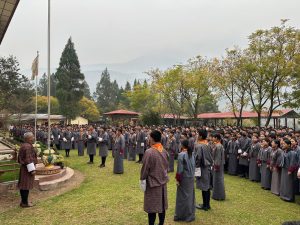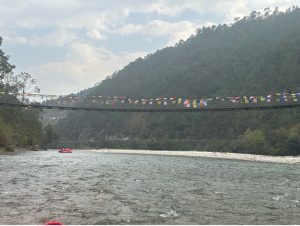Stop Reinforcing the Disconnect: Coming Clean on the New Buzzword in Outdoor Education.
- Posted on
- By Ryan Benson & Ryan Howard
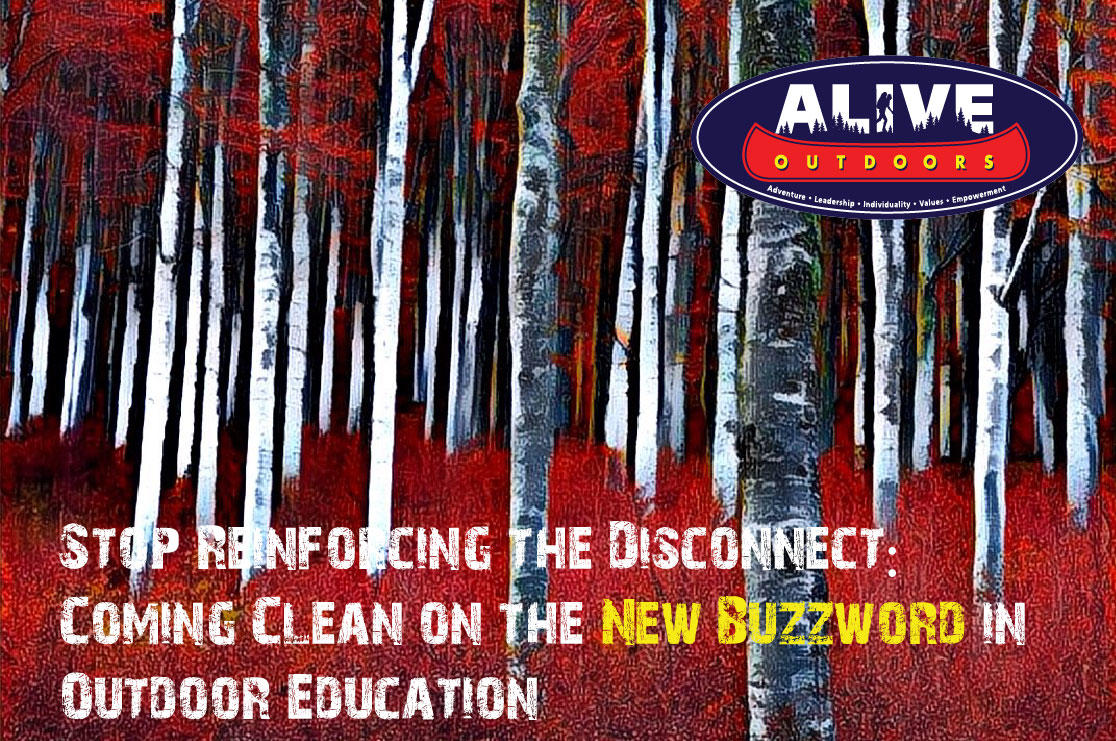
Have you heard the new buzzword in Outdoor Education? My ears burn every time I hear it. The simple phrase forces me to feel the striking disconnect. It is the feeling where reverence for, and separation from resides. The simple truth is that the phrase speaks volumes to how we live and see ourselves with respect (or in this case, disregard) for the non-human side of “the coin.”
The Nature. A simple phrase, yet these two words together represent an important and troubling reality.
I hear “The Nature” used increasingly by students, teachers, professional guides and instructors within our industry. Realistically, I hear “The Nature” a lot. Most often the phrase is used during end of program debriefs, or after canoe trips and activities like Sit Spots or Rewilding. Initially, I thought it was being used as a joke, a play on words to reinforce intentionality with spending purposeful time in the natural world. But, as the thought lingers, I have started to increasingly challenge my initial opinion on the significance of the phrase. Let me explain my take on “The Nature.”
Personally, I am thrilled with the idea that more people are finding meaning in the outdoors, whether it is in urban parks or remote wilderness areas. Specifically, at ALIVE our participants find meaning through the time they spend in nature, we recognize this and build it into everything we do. But what gets my mind twirling is the addition of the “the.” Why, and does it have a deeper meaning?
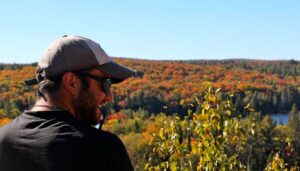
Grammar aside, the importance here resides more in the power of language. How we speak about the natural world defines how we view it in our collective consciousness. If we speak as though we are part of the natural world, we establish our sense of belonging to it. We can all remember Maslow from high school. As we, ironically, become more socially separated as a result of screen time, globalization, or just the realities of a fast paced lifestyle, we generally slip further away from connecting with our physical and present surroundings. This slipping disconnection pulls us further away from the sources of any number of Maslow’s stated needs.
A simple example to highlight the importance of this basic human need is that of “the typical sports fan.” Think of the sense of community and belonging that some people derive from being a dedicated fan of a particular team. Whether it’s yelling at the television or wearing a team’s jersey on game day, the sports fans’ identity is defined by their association with their team. Be it sports, family or nature, it is that connection to something more that allows us to take our own lives a little less seriously, to dust ourselves off when things get us down, move forward, to not sweat the small stuff and put everything into perspective.
Let’s push the power of the language piece a little further. From a social justice perspective, adding a “the” to Nature intentionally places what Nature is into the category of the other. This propagates the notion that we are separate from the natural world, which we clearly are not. Debate it if you wish, but there are some simply facts that are inescapable truths. The health of our ecosystems are directly linked to the quality of the air we breathe, the water we drink and the soil that grows our food. It is so easy to believe that we are not bound up in the same fate as that of the other or “The Nature.” What we often forget, in reference to humans and nature, is that our prosperity is intimately tied into the health of our planet and the natural systems the planet struggles to maintain. So let’s stop treating and calling nature the other.
Additional Thoughts To Consider
As a global society we have become predominately urban
Between 2005 and 2007 we reached a shocking milestone. More people now live in urban vs. rural environments. In a conversation between David Suzuki and Richard Louv at the AGO in Toronto in 2012 Dr. Suzuki discussed the implications of the absence of inclusion of natural areas in urban planning and the difficulty of youth in particular (they have no cars) to gaining access to what natural areas are available. Watch the conversation here: https://www.youtube.com/watch?v=F5DI1Ffdl6Y
Don’t fight animal evolution
This is the simplest, yet one of the most often overlooked, reasons why people enjoy time spent in natural settings. We forget we are animals! Evolutionary processes, though occasionally punctuated by mutation, are slow. As humans, our astounding creative capacity has built a world that we as animals have not had time to catch up with. Think of it this way, people feel good about doing a five-minute sit spot overlooking a lake because as a species we have invested several hundred thousand years evolving and adapting to be there and have the significance of that place reflected in who we are.
The feeling of placelessness is real and pervasive
We build and take meaning from the places we interact with. Urban city parks, country roads or strip malls are intentional places filled with different types of value. We interact with these places in very different ways. Each of these places fills us with unique emotions and interactions. The question to ask yourself is who is curating the place based experiences you have? Generally, the natural world represents a largely un-curated experience (with many notable exceptions) while a shopping mall is filled with a highly structured place experience that has very different intentions built into it.
Don’t underestimate mode of travel
Think about how you move through the places you frequent. A recent journey across the country reminded me that my interactions with places are constrained by the intentionality of the mode of travel I use. My experience of place would differ greatly if I were to walk, cycle, drive or fly through the same stretch between the Yukon and Toronto.
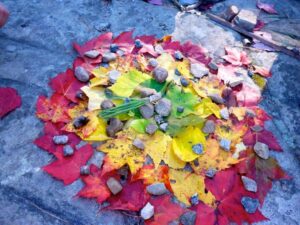
This post was initially written by Ryan Benson (former Program Director) with ALIVE Outdoors and Ryan Howard.
